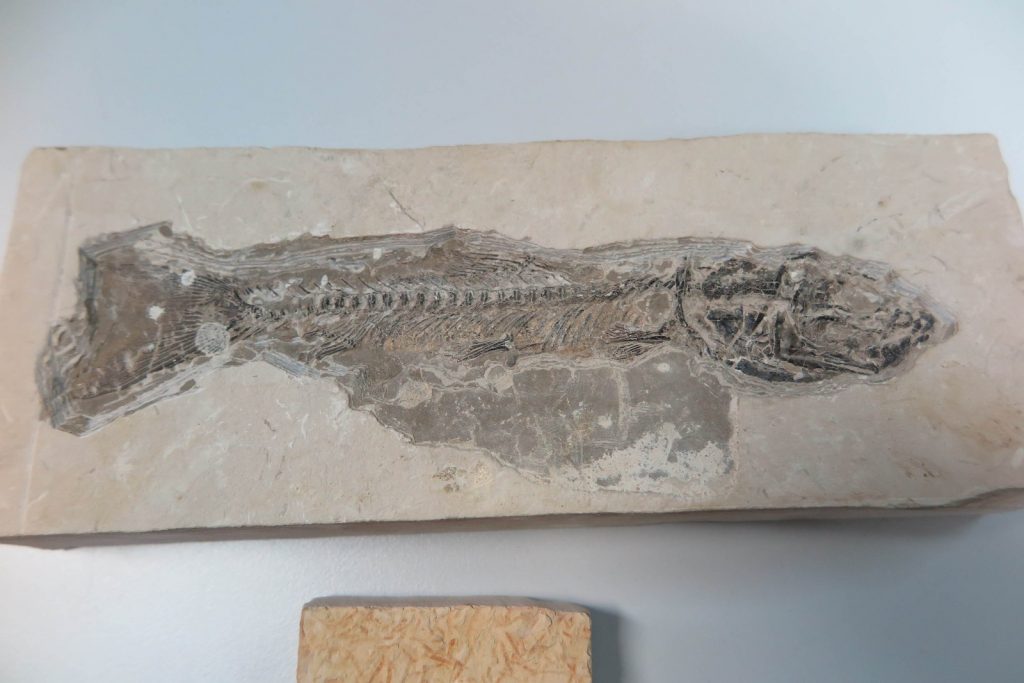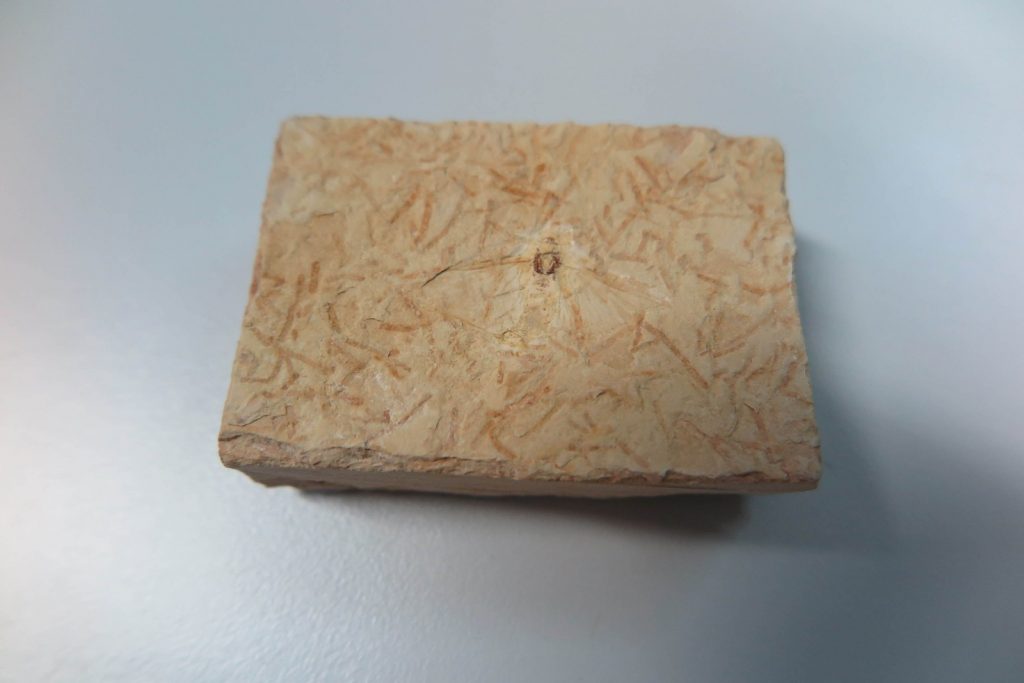RIO DE JANEIRO, BRAZIL – Banned in Brazil, the purchase and sale of fossils are freely practiced in municipalities in the countryside of Brazil’s northeastern Ceará state. The G1 news site found trafficking in pieces dating back millions of years in the towns of Nova Olinda and Santana do Cariri, available for as little as R$20 (US$5).

Introducing themselves as tourists, members of the G1 team traveled to points of sale where the fossils are found. In one of the mines, a fossil of a Dastilbe crandalli, a freshwater fish that lived from 96 to 113 million years ago, was bought for only R$20. The purchase also yielded the gift of a Heteroptera (water cockroach).
In Santana do Cariri, a man was caught showing what might have been a dinosaur bone on his floor. “This here’s a joint, there’s more on another rock,” he explained.
A local resident, he was clearly aware of the illegality of the sale of fossils for business. “If you take a rock out of here and market it, you’ll get in trouble,” he cautioned.
On the highway connecting Santana do Cariri to Nova Olinda, several mines are quarrying laminated limestone. Before arriving at one of them, an unidentified resident admits that the fossilized stones are abundant in the region, but the Federal Police inspect it.
According to him, whoever finds a fossil keeps it secret. “The employees (of the mines) keep quiet when they find them. They pass a message to a guy here; he comes, prices it, then another one prices it, and they end up taking it. Selling is forbidden. It’s expensive, depending on the piece. The guy often finds caimans and pterosaurs,” he confirms.
At the Idemar Mine, the team identified themselves as tourists who wanted to take a “souvenir” home and asked if there was any “stone” — as the locals usually call it — available.
Quickly, an employee escorted the team to another room, where there were several lockers. As soon as everyone came in, the man pointed at a fossil.
“This isn’t mine, but it’s rare. Researchers go crazy when they see it. Every other year, you find one. I’ve worked here for ten years. It’s been a long time since I’ve seen this one,” he says, after showing a fish in his hands.

For only R$20, the team purchased another piece identified as a water cockroach. After buying the fossils, the material collected in Nova Olinda was delivered to the Palaeontology Laboratory of the Regional University of Cariri (URCA).
Over the past three weeks, the reporting team has also tried to reach the Federal Police precinct in Juazeiro do Norte, Ceará, by phone. Questions were sent by e-mail, and a reporter visited the facility, but was unable to speak with detective Josefa Maria Lourenço who, through the secretaries, said she was “very busy.”
In Brazil, fossils are federal government property, and extraction depends on an authorization from the National Mining Agency.

